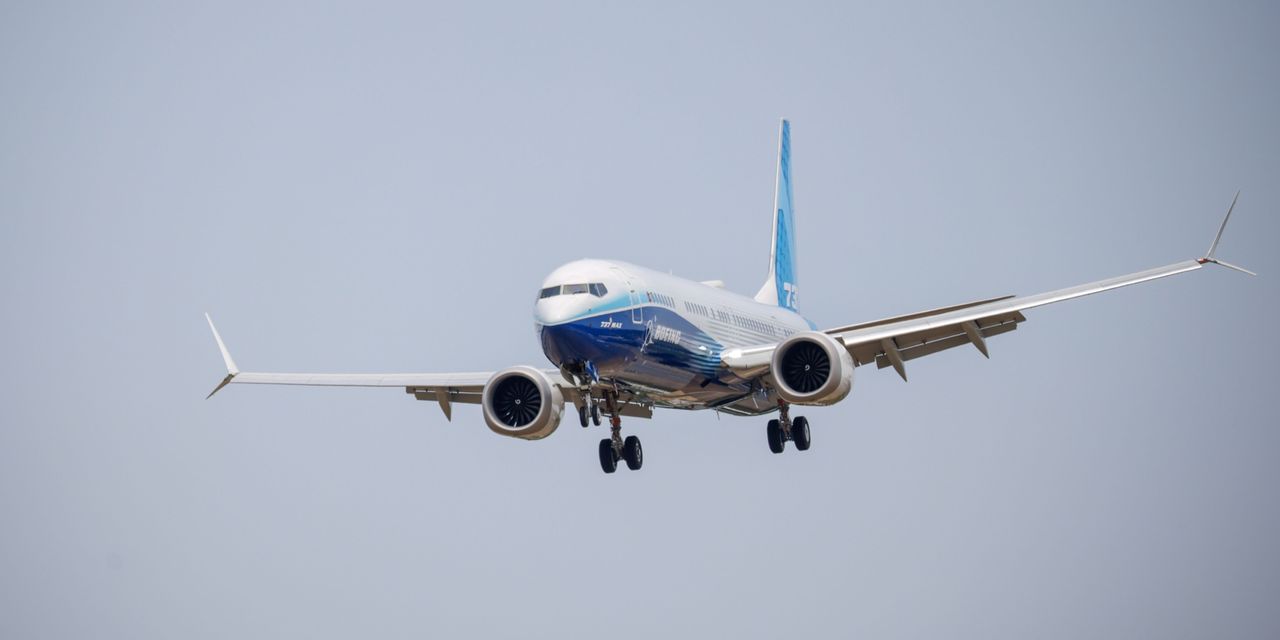Boeing
sees cumulative spending on commercial aircraft between 2023 and 2042 totaling $8 trillion, the company said Saturday.
The whopping figure demonstrates that demand is not an issue for the aircraft maker and its rival
Airbus.
Instead, they will have to figure out how to ramp up production.
Boeing
(ticker: BA) released its updated market outlook ahead of the company’s biannual air show, which kicks off Monday in Paris.
Last year, Boeing predicted that cumulative spending on commercial aircraft between 2022 and 2041 would total $7.2 billion, but excluded Russia and Central Asia.
The new figure represents the cost of the roughly 42,600 planes that airlines will need between 2023 and 2042. Those planes will take the global in-service fleet of commercial airliners and freighters from roughly 24,500 today to 48,600. (Aircraft retirements, when planes are either too old to fly or too expensive to keep operating, make that equation balance.)
Global population growth, and more consumers who are able to afford flying for leisure and business, are spurring the need for a larger fleet. Boeing projects that by 2042, the number of households around the world making more than the equivalent of about $25,000 annually will top 1.3 billion, up from roughly 800 million today.
But hitting $8 trillion isn’t a walk in the park. Excluding the roughly 1,800 regional jets in the 2023 forecast, Boeing and Airbus will have to make roughly 2,000 planes a year for 20 years on average in order to reach that number.
China’s state aerospace company, COMAC, has a single-aisle jet that meet some local demand. But even if COMAC captured one-third of the Chinese market, the Western pair would need to deliver about 1,900 jets a year on average for 20 years.
Boeing and Airbus had had their best combined year in 2018, when they delivered 1,606 jets.
Covid also stole more than a couple of years of growth from the industry. In recent months, Boeing and key suppliers including
General Electric
(GE) have repeatedly stressed the need to build back the supply chain to the point it can support 1,900 or 2,000-plus planes a year.
Boeing will meet with the media in a Monday event that won’t be webcast. Airbus is slated to host an event Wednesday.
Overall, Boeing’s growth forecast is welcome news for the commercial aviation industry at large. In April, global domestic air travel finally topped pre-Covid levels. International travel, meanwhile, is still roughly 16% below pre-Covid levels.
Continued recovery may also have investors feeling better: Boeing and Airbus shares have gained roughly 61% and 39% over the past 12 months, respectively. The
S&P 500
is up about 20% over the same span.
Write to Al Root at [email protected]
Read the full article here


